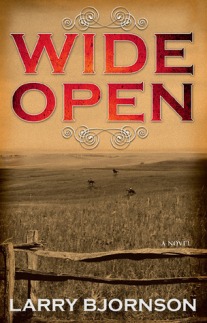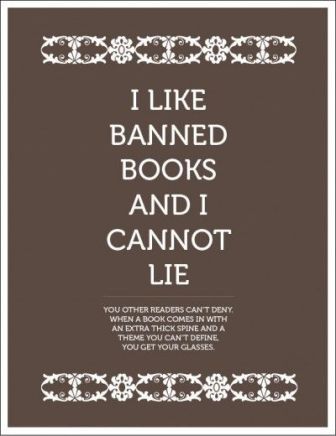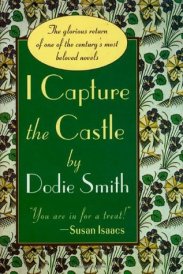You never really understand a person until you consider things from his point of view… Until you climb inside of his skin and walk around in it.
~ Harper Lee, To Kill a Mockingbird
~ Harper Lee, To Kill a Mockingbird
The 2010s have been a formative year for me as a reader. I’ve always loved books but I haven’t always been a reader. It wasn’t until I graduated from high school and was able to choose the books I wanted to read that I truly became a voracious reader. Then in 2011, I got a part-time job at my local library. Through that job, I discovered new authors, new series, and even genres I’d never really considered before. I also met many book lovers like myself. One of those booklovers, a fellow librarian, introduced me to Goodreads.com and even though I had to leave the job when life intervened, I continued to make discoveries. In 2015 I started this blog for a couple of reasons but mainly because I missed sharing my passion for good books with the patrons and librarians at work. It has been a joy share the ups and downs of the reader’s life. As the decade comes to a close, I thought I’d take the time to review some of the best and most important books I’ve read over the past 10 years. I’ve tried to narrow it down, but I’ve read a lot of great books during the decade so bear with me.
Romance: Sometimes you just need the comfort and escape of the modern fairytale quality of a good Rom/Com. I discovered, however, that not all books that can be categorized as Romance fit into the mold of that stereotype.
Historical Fiction: I love learning about history and while I understand that Historical Fiction takes liberties with the facts, it is a gateway to learning the true stories behind the fictionalized versions. And who doesn’t love being transported to another place and time?
Fantasy: Of all of the genres I read, this is the one about which my feelings have changed the most. As a child, while I loved a good fairytale story, I tended to gravitate toward the wit and realism of Beverly Cleary’s Ramona Quimby series and then the young adult fiction of Judy Blume where the characters and their situations were recognizable. Then came Harry Potter. Ever since reading that seminal series, I’ve been searching for more Fantasy fiction that captivates me as Harry’s world did.
Children’s Literature: It’s okay to look back when it comes to reading. Whether it’s revisiting an old favorite or discovering a classic I’d missed when I was younger, there is nothing to warm the soul like reading a good children’s story.
Western: Since reading Lonesome Dove in college, I’ve been on the lookout for another as transporting as that classic. Plus, when I find a good one, I get to share it with my father and sharing a good book is always fun.

Mystery/Thriller: Mystery is another genre I don’t read too much of though I do enjoy the occasional cozy mystery, particularly one set in Britain. There are a few exceptions though. I am a huge Sherlock Holmes fan.
Chick-Lit: This is another genre that gets a bad rap but it is my favorite genre so it hurts when people put it down based a few crappy wannabe Chick-Lit novels. I know about those; I’ve read more than my fair share of them.
Women’s Fiction: Women’s Fiction, to me, is basically the Judy Blume books I loved as a teen all grown up, dealing with issues that all women face from the mundane to the extraordinary.
Fiction: Some books just don’t fit into the mold of any one genre but I had to mention them.
Classic Literature: These are the books that have endured in our hearts and minds for generations and make their way onto every must-read list ever compiled.
Miscellaneous:
There have always been quotes that have stuck with me but more and more I find myself marking new passages as I read. Some speak to me; others make me laugh so much that I have to share them, and many say exactly what I’ve been thinking or feeling so much more eloquently than I ever could. I’ve decided to share some of these with you. These Quotes of the Week may be from a book I’ve read, or about books and reading, or just a quote I enjoy.
My inaugural Quote of the Week is a classic. I think we can all agree that this is one of the greatest lines of literature and one of the greatest quotes about reading ever:
– Harper Lee, To Kill a Mockingbird
 But given the number of classic books that have been banned through the decades, who doesn’t? Without knowing it, I proudly declared some of those oft-banned books among my favorites. To Kill a Mockingbird, the entire Harry Potter series, A Wrinkle in Time, Are You There God, It’s Me Margaret, and A Light in the Attic by Shel Silverstein just to name a few. Seriously? What did they find offensive about the poetry of Shel Silverstein? Is it too funny, entertaining, and honest? That’s the key, isn’t it? Honesty. Certain factions of society don’t want people to develop open minds about the world, to see the world as it truly is, or to think for themselves. And they want to stop it as early as possible. That’s why so many of the books that have been banned are ones written for children and young adults. That makes me angry and that’s why I proudly declare I READ BANNED BOOKS! This week, September 20 – October 3, 2015, is banned books week. If you want to learn more about books that have been banned and see lists of the 100 most banned books from the last two decades, visit http://www.ala.org/bbooks/frequentlychallengedbooks/top100
But given the number of classic books that have been banned through the decades, who doesn’t? Without knowing it, I proudly declared some of those oft-banned books among my favorites. To Kill a Mockingbird, the entire Harry Potter series, A Wrinkle in Time, Are You There God, It’s Me Margaret, and A Light in the Attic by Shel Silverstein just to name a few. Seriously? What did they find offensive about the poetry of Shel Silverstein? Is it too funny, entertaining, and honest? That’s the key, isn’t it? Honesty. Certain factions of society don’t want people to develop open minds about the world, to see the world as it truly is, or to think for themselves. And they want to stop it as early as possible. That’s why so many of the books that have been banned are ones written for children and young adults. That makes me angry and that’s why I proudly declare I READ BANNED BOOKS! This week, September 20 – October 3, 2015, is banned books week. If you want to learn more about books that have been banned and see lists of the 100 most banned books from the last two decades, visit http://www.ala.org/bbooks/frequentlychallengedbooks/top100
I have observed that using a child or innocent character as the narrator of a story or book with adult themes can be most powerful. Just think of Scout in To Kill a Mockingbird, young Frank McCourt in Angela’s Ashes, or seven year old Luke Chandler, narrator of John Grisham’s novel A Painted House, which may not be the classics the other two have become but made an impression on me in large part because of Luke’s narration. In Scout’s case, intelligent but naïve about the evils of the world, she brings a no-nonsense take on the events and people at the center of the story. The right thing to do seems so obvious when she points it out. Without the humor young Frank brings to his tale of growing up in Ireland, Angela’s Ashes has the potential to be one of the most agonizingly depressing books ever written but because of the young boy’s outlook and ability to see the humor in his tragic world, I often found myself laughing through my tears. In A Painted House, the narrator’s youth makes him an unreliable narrator because he cannot understand all that he sees and hears. His unreliability increases the suspense of the novel because the reader sees the events through Luke’s young eyes.

I just finished reading Dodie Smith’s I Capture the Castle and the narrator, Cassandra is another example of the power and wisdom of a young or innocent narrator. Though the novel only encompasses six months in Cassandra’s young life, she loses that innocence and it shows in her narration. In the first section, despite the hardships in her life, Cassandra’s writing is filled with wise and wonderful observations stated with a simplicity that can only come from innocent observers. I Capture the Castle is full of memorable quotes, such as:
“I have noticed that when things happen in one’s imaginings, they never happen in one’s life.”
Or
“I have noticed that rooms which are extra clean feel extra cold.”
Or
“I shouldn’t think even millionaires could eat anything nicer than new bread and real butter and honey for tea.”
But as the story moves forward and Cassandra begins to see the way the world really works and the true natures of the people she loves, her observations lose their humor and simplicity. They also become a little more self-centered as she grows more concerned with her own aching heart than her family and her loved ones or describing the world in which she lives. I guess we’re all like that. As children, we are focused on our family, then our friends, and on learning all we can about our world but when we reach adolescence, our focus is definitely on our own drama (real or imagined). When Cassandra does this, she admits that she loses her keen sense of observation. At her lowest, she fails to take in the city as she walks through the streets of London after leaving her sister. Something she would have relished only a month or two earlier.
Good books always seem to teach us something about ourselves regardless of the point of view. Maybe it is just that young or innocent narrators, like the children in our lives, are better at pointing out truths in the simplest terms than adults are.